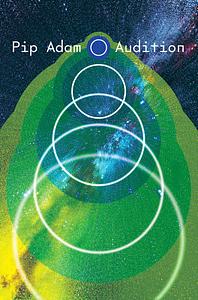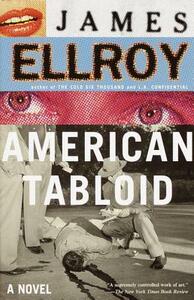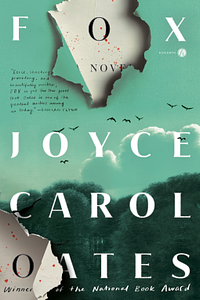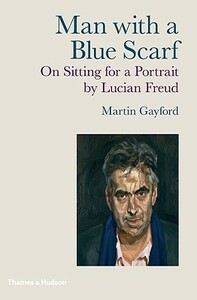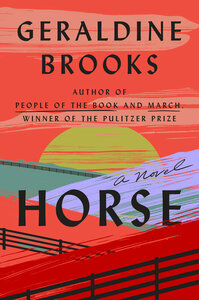You need to sign in or sign up before continuing.
Take a photo of a barcode or cover
scottjbaxter's reviews
582 reviews
Some books speak to me deeply. This one did not. Pip Adam ‘s book is a short experimental novel about three people, Alba, Stanley, and Drew, traveling in a spaceship. If they talk, then the spaceship keeps moving; if they stop talking the ship slows and they continue growing. The three are filling up more and more of the ship as time goes by. By the end of the book, the narrator tells you that the three are incarcerated people, although Adam never tells us what crime they were convicted of.
The prose is decent and avoids cliches, but I almost never found myself stopping to admire a sentence. The absence of mistakes is not the same as sublime prose. I only had two passages I marked:
‘So, without being able to check a screen or a watch we have no idea how much time has passed. Maybe it has ceased passing. Since we stopped eating it is harder to tell. Our bodies were relatively reliable time mechanisms – hungry at certain times each day or at least hungry at certain distances from their last meals. But now we are hungry all the time. We slip sometimes in and out of dizzy sleep, but the sleep holds no order to it. It may have only been a day. This is a terrifying thought’ (p. 31).
and
Before the classroom, they were in prison. Nothing metaphorical or allegorical – just a regular prison (p 114).
The author says that “this book is about the abolition of prisons” (p. 223). I worked in a jail for six years and I have corresponded with prisoners through the postal service for some time. But Adam failed to make me care deeply about the characters in this book. Perhaps someone else will like Audition more than I did.
kindle and Audible audiobook. 228 pgs. 29 July 2025.
I finished James Atlas' biography of Delmore Schwartz which was published in 1977. Delmore Schwartz is a largely forgotten name now, but he was an important name in poetry and American letters in the late 1930s and 1940s. One of his admirers was John Berryman:
One of his Dream Songs affords a glimpse of him in 1942.
You said ‘My head’s on fire’
meaning inspired O
meeting on the walk down to Warren House
so long ago we were almost anonymous
waiting for fame to descend
with a scarlet mantle & tell us who we were (p. 269).
Or consider this description in Saul Bellow’s Pulitzer and Nobel prize winning novel Humboldt's Gift:
[In Dreams Begin Responsibilities] published by [Delmore Schwartz] in the Thirties was an immediate hit. [Schwartz] was just what everyone had been waiting for. Out in the Midwest I had certainly been waiting eagerly, I can tell you that. An avant-garde writer, the first of a new generation, he was handsome, fair, large, serious, witty, he was learned. The guy had it all. All the papers reviewed his book. His picture appeared in Time without insult and in Newsweek with praise. I read Harlequin Ballads enthusiastically. I was a student at the University of Wisconsin and thought about nothing but literature day and night. Humboldt revealed to me new ways of doing things. I was ecstatic. I envied his luck, his talent, and his fame (p. 1).
Unfortunately, mental health issues, as well as trouble finding and keeping a job took a toll. His difficulties were compounded by minor drug use, alcohol, smoking, and affairs with WAY TOO MANY coeds. By the end of his life, Schwartz had lost touch with his friends in the literary community and his legacy is now one more of early promise that never quite materialized. Nevertheless, I found the book fascinating.
Kindle and Audible audiobook. 532 pgs. 26 July 2025.
James Ellroy’s American Tabloid is a wild ride through some of the seedier aspects of American history from 1957 to just before Kennedy’s assination in November of 1963. It has three point of view characters: Ward Littel, Kemper Boyd, and Pete Bondurant. The three start as FBI agents, but they go so deep it can be difficult to figure out who their loyalties are truly with. Along the way we have Senator and, later, president, John F Kennedy, his women and his bad back, his brother Bobby on a crusade to take down organized crime, teamster’s president Jimmy Hoffa, FBI director J Edgar Hoover, Chicago mafia boss Sam Giancana, business tycoon Howard Hughes with serious drug and mental health issues, Fidel Castro, and quite a few Cuban expatriates, the CIA and heroin sales.
The book is quite a long fever swamp of conspiracies, many of which are definitely not true. Perhaps the most outrageous allegation is that Joseph P Kennedy financed much of the Teamster’s pension fund that was used for a host of illegal activities.
I first read this book decades ago, so long ago that I barely remembered it. I was reminded of the book recently when Will Sommer was a guest on the Ezra Klein show/podcast. Sommer is an expert in conspiracy theories and has written a book on Q Anon. He and Klein discussed Jeffrey Epstein and why Trump supporters care so much about him. At the end of the episode Klein always asks his guest for three book recommendations. Sommer recommend American Tabloid, Sam Tannenhouse’s biography of William F Buckly and Lucy Sante’s Low Life about the history of crime in Manhattan. Klein began his show with a joke that might explain why people like books like American Tabloid.
A conspiracy theorist dies and goes to heaven.
When he arrives, God says, “Welcome. You can ask me one question. Anything you want.”
The man says, “I need to know: Who really shot J.F.K.?”
God says, “Lee Harvey Oswald shot him, and he acted alone.”
The man pauses and then says, “Wow. This goes even higher than I thought.”
Review of the Day: Falconer by John Cheever
John Cheever is now criminally underread. Let me commend this book about a man named Farragut, serving time in Falconer prison for killing his brother. The language is remarkable:
You see, I’m in cellblock F. It’s sort of a forgotten place. Like Piranesi.
His cock, so recently ready for fun, retreated from Waterloo to Paris and from Paris to Elba.
Obscenity worked on their speech like a tonic, giving it force and structure, but the word “fucking,” so much later, had for Farragut the dim force of a recollection.
Farragut had seen the cats of Luxor, Cairo and Rome, but with everybody going around the world these days and writing cards and sometimes books about it, there wasn’t much point in linking the shadowy cats of prison to the shadowy cats of the ancient world.
He could write his indictment on the wall and then commit it to memory, but some part of his background and its influence on his character restrained him from using the wall for a page. He was a man, he preserved at least some vision of dignity, and to write what might be his last statement on the wall seemed to him an undue exploitation of a bizarre situation.
With the exception of organized religion and triumphant fucking, Farragut considered transcendent experience to be perilous rubbish. One saved one’s ardor for people and objects that could be used. The flora and fauna of the rain forest were incomprehensible, but one could comprehend the path that led to one’s destination.
Farragut killed the time easily at the top of his methadone high. Time was new bread, time was a sympathetic element, time was water you swam in, time moved through the cellblock with the grace of light.
“I guess it was during the ball game. Some dude blew me while I was watching the ball game. I don’t know who it was. I mean if I’d known who it was I would have killed him, but I was so interested in the game that I didn’t notice. I love baseball.”
kindle and Audible audiobook. 225 pgs. 6 July.
Huneven’s book is a novel about the Samuelson family in Altadena, California..
In the first chapter, you meet Ellis, the son. He has just finished high school and has left the house to spend the summer with his girlfriend, Julia, in Bug Hollow — a counterculture intentional community in Northern California. He has committed to attending the University of Mississippi on a baseball scholarship in the fall. By the time the chapter ends, Ellis has unexpectedly drowned while swimming, Julia realizes she is pregnant with his child, and Julia decides to allow Ellis’ parents to adopt the baby.
If this sounds like a lot for a first chapter, it is. Future chapters jump forward in time. The action takes place in Los Angeles, Jeddah, Saudi Arabia, Oaxaca, Mexico. There are multiple relationships, affairs, pregnancies. And a bunch of other things happen.
At least in my opinion, this book is a collection of short stories, but, for marketing purposes, it was called a novel on the cover. If you read each chapter on a different day as a self-contained story you will probably find the novel less confusing than I did. I do not know if the multiple affairs will turn you off.
One thing Huneven’s book did was make me think about other stories about families I liked. They include:
The Brothers K by David James Duncan. Baseball, seventh day adventists, the sixties, and some very impressive letters sent through the mail.
American Pastoral by Philip Roth. A father living the dream life has his life radically changed after his daughter commits a violent political act.
One Hundred Years of Solitude, The Accidental Tourist, The Poisonwood Bible, Killers of the Flower Moon, The Liars’ Club,Oedipus Rex, Medea, Transcendent Kingdom, Shuggie Bain, Lucy by the Sea, Beloved, Enemies a Love Story
QOTD: What book about a family would you add?
kindle and libro.fm audiobook. 274 pgs. 3 July.
In the first chapter, you meet Ellis, the son. He has just finished high school and has left the house to spend the summer with his girlfriend, Julia, in Bug Hollow — a counterculture intentional community in Northern California. He has committed to attending the University of Mississippi on a baseball scholarship in the fall. By the time the chapter ends, Ellis has unexpectedly drowned while swimming, Julia realizes she is pregnant with his child, and Julia decides to allow Ellis’ parents to adopt the baby.
If this sounds like a lot for a first chapter, it is. Future chapters jump forward in time. The action takes place in Los Angeles, Jeddah, Saudi Arabia, Oaxaca, Mexico. There are multiple relationships, affairs, pregnancies. And a bunch of other things happen.
At least in my opinion, this book is a collection of short stories, but, for marketing purposes, it was called a novel on the cover. If you read each chapter on a different day as a self-contained story you will probably find the novel less confusing than I did. I do not know if the multiple affairs will turn you off.
One thing Huneven’s book did was make me think about other stories about families I liked. They include:
The Brothers K by David James Duncan. Baseball, seventh day adventists, the sixties, and some very impressive letters sent through the mail.
American Pastoral by Philip Roth. A father living the dream life has his life radically changed after his daughter commits a violent political act.
One Hundred Years of Solitude, The Accidental Tourist, The Poisonwood Bible, Killers of the Flower Moon, The Liars’ Club,Oedipus Rex, Medea, Transcendent Kingdom, Shuggie Bain, Lucy by the Sea, Beloved, Enemies a Love Story
QOTD: What book about a family would you add?
kindle and libro.fm audiobook. 274 pgs. 3 July.
The book was notable for being Cheever's first novel after publishing many short stories, for winning the National Book award, and for being the first mainstream novel to drop one f-bomb:
“if it’s absolutely necessary for you to make love to me I’ll do it, but I think that you ought to understand that it’s not as crucial as you make it.”
“You’ve talked yourself out of a fuck,” he said bleakly.
And there is some brief same sex sexuality:
And now we come to the unsavory or homosexual part of our tale and any disinterested reader is encouraged to skip….
The book is often episodic like a series of well written stories stapled together, but, at least in my opinion, the highlight of the book is the prose; the sentences occasionally border on the sublime.
We all, man and boy, know what a transient barracks looks like and there would be no point in enumerating this barrenness.
He had not fallen in love with her because of her gift with arithmetic, because of her cleanliness, her reasonable mind or any other human excellence. It was because he perceived in her some extraordinary inner comeliness or grace that satisfied his needs.
Now Moses knew that women can take many forms; that it is in their power in the convulsions of love to take the shape of any beast or beauty on land or sea—fire, caves, the sweetness of haying weather—and to let break upon the mind, like light on water, its most brilliant imagery, and it did not dismay him that this gift for metamorphosis could be used to further all kinds of venal and petty schemes for self-aggrandizement.
There is a parochialism to some kinds of misery—a geographical remoteness like the life led by a grade-crossing tender—a point where life is lived or endured at the minimum of energy and perception and where most of the world appears to pass swiftly by like passengers on the gorgeous trains of the Santa Fe.
She was beautiful and it was that degree of beauty that fills even the grocery boy and the garage mechanic with solemn thoughts.
kindle and Audible audiobook. 391 pgs. 28 June 2025.
In an article celebrating the author’s 82nd birthday in 2019, Adrian McKinty summed the book up as:
Northern California and America in the early 1980s. Reagan, Star Wars, George Lucas, Brock Vond. Big pop culture and literary hits and most people should be able to get the refs. Lot 49, Inherent Vice, Vineland, and Bleeding Edge form a kind of paranoid alternative history contemporary quartet that should be accessible to most general readers.
Here are some of my favorite lines from the book:
Later than usual one summer morning in 1984, Zoyd Wheeler drifted awake in sunlight through a creeping fig that hung in the window, with a squadron of blue jays stomping around on the roof (p. 3).
It wasn’t just that his folks were vegetarians they also discriminated among vegetables, excluding from their diet everything red, for example, the color of anger. Most bread, having been made by killing yeasts, was taboo (p. 20).
Hector slumped in zomoskepsis, or the contemplation of his soup (p. 31).
”Never eat anything that glows,” pronounced Mrs. Lo FInto, an Italian mother who not only couldn’t cook but actually suffered clinical kouxinaphobiam or fear of kitchens, her assignment back herre being part of her therapy (p. 190).
What do you call a Thanatoid with ‘Sir’ in front of his name? Knight of the Living Dead! How many Thanatoids’s it take to screw in a lightbulb? None — it gets too hot in there! What does a Thanatoid do on Halloween? Puts a fruit bowl on his head, two straws up his nose, and goes as a Zombie!
Then again, it’s the whole Reagan program, isn’t it — dismantle the New Deal, reverse the effects of World War II, restore fascism at home and around the world, flee into the past, can’t you feel it, all the dangerous childish stupidity… (p. 265).
Accoriding to Vato Gomez, one of the heavy-dutiest of Mexican curses goes, “May your life be full of lawyers” (p. 359).
kindle and Audible audioboook. 398 pgs. 25 June 2025
I would like to say that, as my friend Ted once told her, Joyce Carol Oates is a national treasure who continues to be a major writer willing to explore the dark themes of sexual violence toward women.
The book is, essentially, a very slow murder mystery. The story is told in first person narration that switches among a number of different characters. As is the nature of first person stories, it is not always clear how reliable these different narrators are. So, at the end of the story, you know that Francis Fox has been murdered, but it is unclear who the murderer is.
Fox is a book that very much lives in the minds of the characters, especially teacher Francis Fox, and the students he takes advantage of. The book takes place at the elite Langhorne academy and the book is very literary with frequent references to books and art. In particular, Vladimir Nabokov’s Lolita, the writings and life of Edgar Allen Poe, and Balthus’ painting Therese Dreaming come up over and over again.
One note about the work of Balthus. He explored the theme of young women in provocative poses throughout his work, but he also was very interested in cats. Oates is also very much a cat person. I would like to close with a quote from an article by Mia Manzulli, who lived next door to Oates for a number of years:
An interesting chapter in Oates’s writing life are the four children’s books, each featuring a cat. Someone had given Come Meet Muffin to our children, thinking we would appreciate this connection to our neighbor. As far as I know, we never met Muffin, but one of her cats frequented our back patio. An intense ginger cat with searing green eyes, it would sit outside looking in. This cat seemed to be regarding our life intently, taking notes perhaps, making me (not a cat person) uncomfortable, definitely.
I wanted to believe that Oates knew we existed. While her cat clearly knew who we were, she never did. But I never stopped hoping for some chance encounter.
kindle and libro.fm audiobook. 640 pgs. 21 June 2025
A Review in Quotations
What, then, is a portrait painter painting? An individual who persists through time, or merely the way a ceaselessly mutating human organism appears in a particular time and place? It is a good question.
when you have the sort of temperament that is always looking for flaws and trouble [his temperament, in other words], it might stop you from having what you always want, which is to be as audacious as possible. One has to find the courage to keep on trying.’ ‘How?’ ‘Not painting in a stale or predictable way.
I begin to feel a slight apprehension as to what this picture will look like. Will I look ugly? Will I look old? Facing up to the facts of life, such as ageing and mortality, are precisely the point of LF’s type of painting – of course, we applaud it in Rembrandt, but I’m not sure how I feel about the policy when it is applied to myself.
‘In a way I work the way I do because I can’t see what I’m doing. I decided long ago not to wear reading glasses when I painted, although I do when I make etchings because that is very close work. It’s only by stepping back that I can see what I’ve been painting, so it’s more like aiming at a target while I’m actually putting the paint on. But I’m sure if I wore glasses it would affect the way I paint.
Evidently, painting is a physical activity like playing the piano or violin. Touch comes into it, and personal tastes in questions such as the tightness of the canvas, its texture, the variety of brush, and so forth.
Last July, six years after the final sitting, and two years since I wrote the last word of this book, LF died. His had been an epic life, full of achievement. I shall miss him – his wit, his presence, his intelligence – tremendously. But because he was an artist, and an extraordinary one, quite a lot of his thought and his feelings survive, embedded in his paintings.
kindle. 193 pgs. 14 June 2025
Review of the Day: Horse by Geraldine Brooks
When I was in graduate school, in the fall of 2001, I worked as a TA for a computer science professor named Jens Palsberg, now at UCLA. The course I helped with was a course in theoretical computer science and compilers. But one of the main purposes of the course was to teach graduate students to write reviews of technical papers. I remember one of the less technical lessons Jens passed on to his students was to spend more time on the good papers and less time on the ones not as good. I will follow Jens’ suggestion and try and review this book quickly.
The short version of Brooks’ novel is that is the story of the discovery in 2019 of a 19th century painting of a thoroughbred horse and his trainer. The problem with the book is that it just tries to do too much by including the history of slavery, the life and conditions of black men who worked with horses in 1850s Kentucky, black lives matter, an interracial romance, the beginnings of the COVID pandemic and many other issues. At least in my opinion, Horse could have been a very good novel if it were stripped down to its core and just 250 pages long.
In addition, the prose was pedestrian. When I read a book of literary fiction, one of the things I look forward to is finding well-constructed sentences worth pausing over and, perhaps, even worth memorizing. I often mark multiple lines in the book I am reading. The only line I marked in this book was:
There’s a lot more of it, but I can’t believe I remembered that much. Why do bad poems stick in the brain better than good ones?
kindle and libro.fm audiobook. 401 pgs. 15 June 2025.
QOTD: What was the last book you read that you were told was going to be great that disappointed you?
